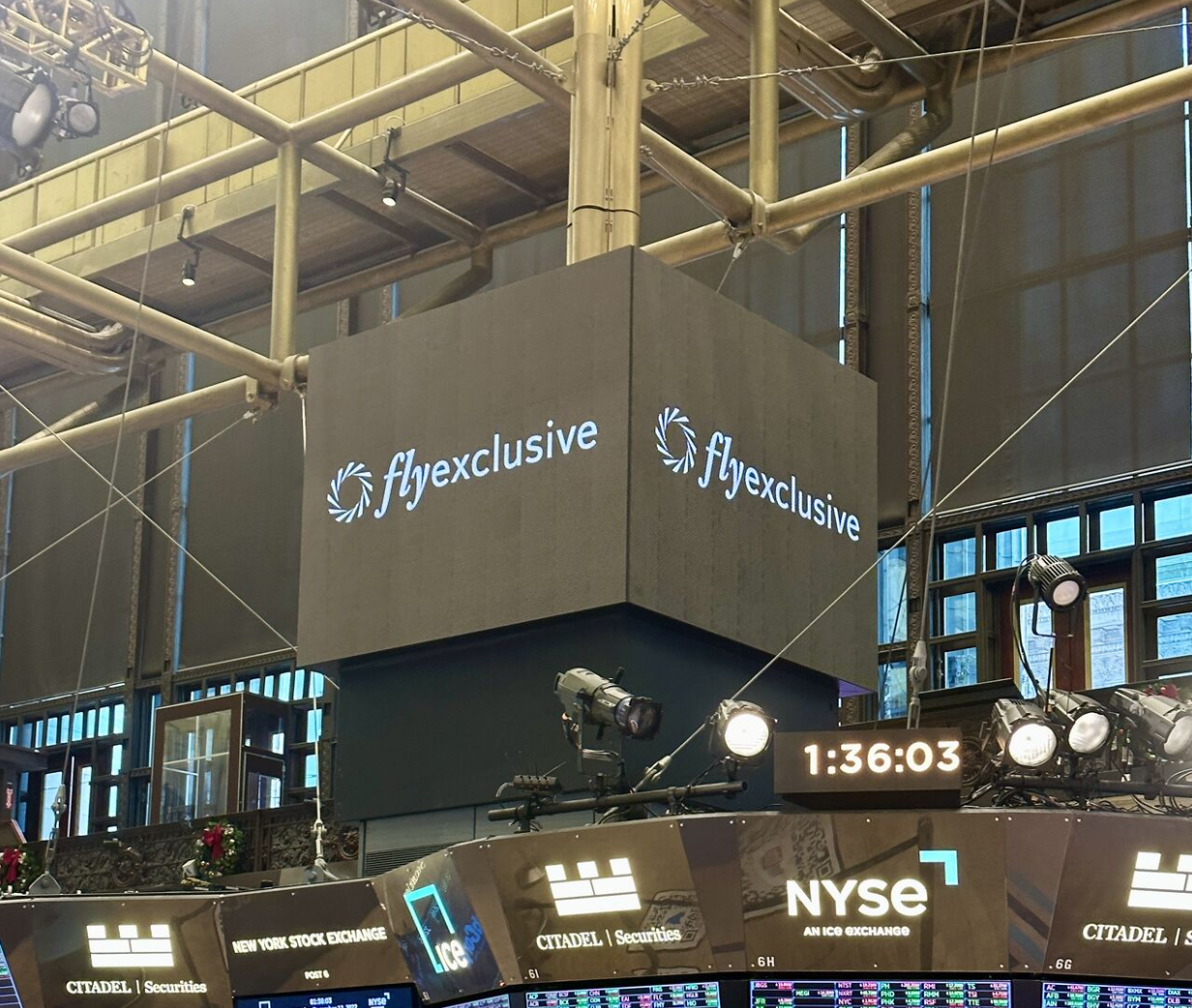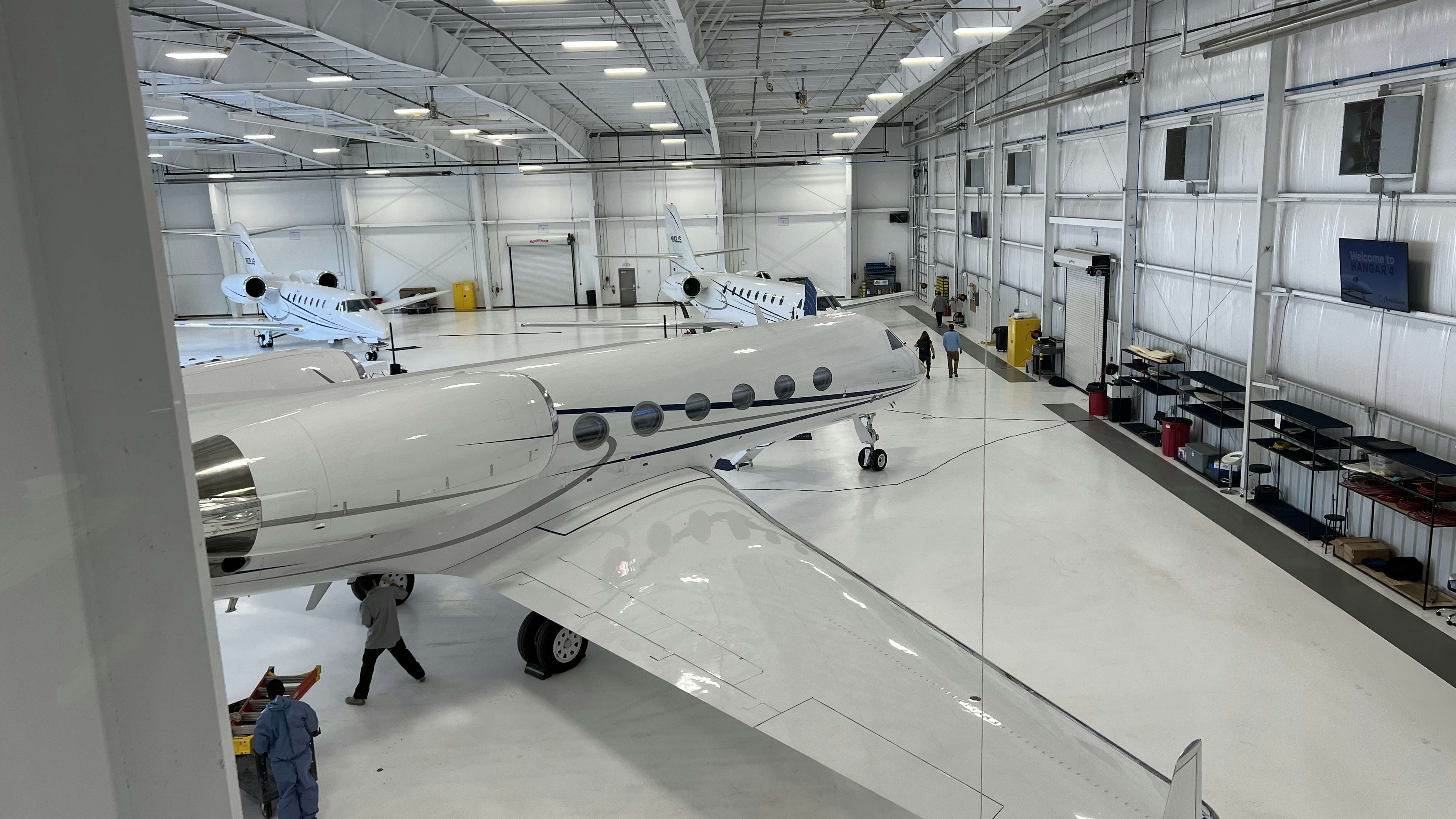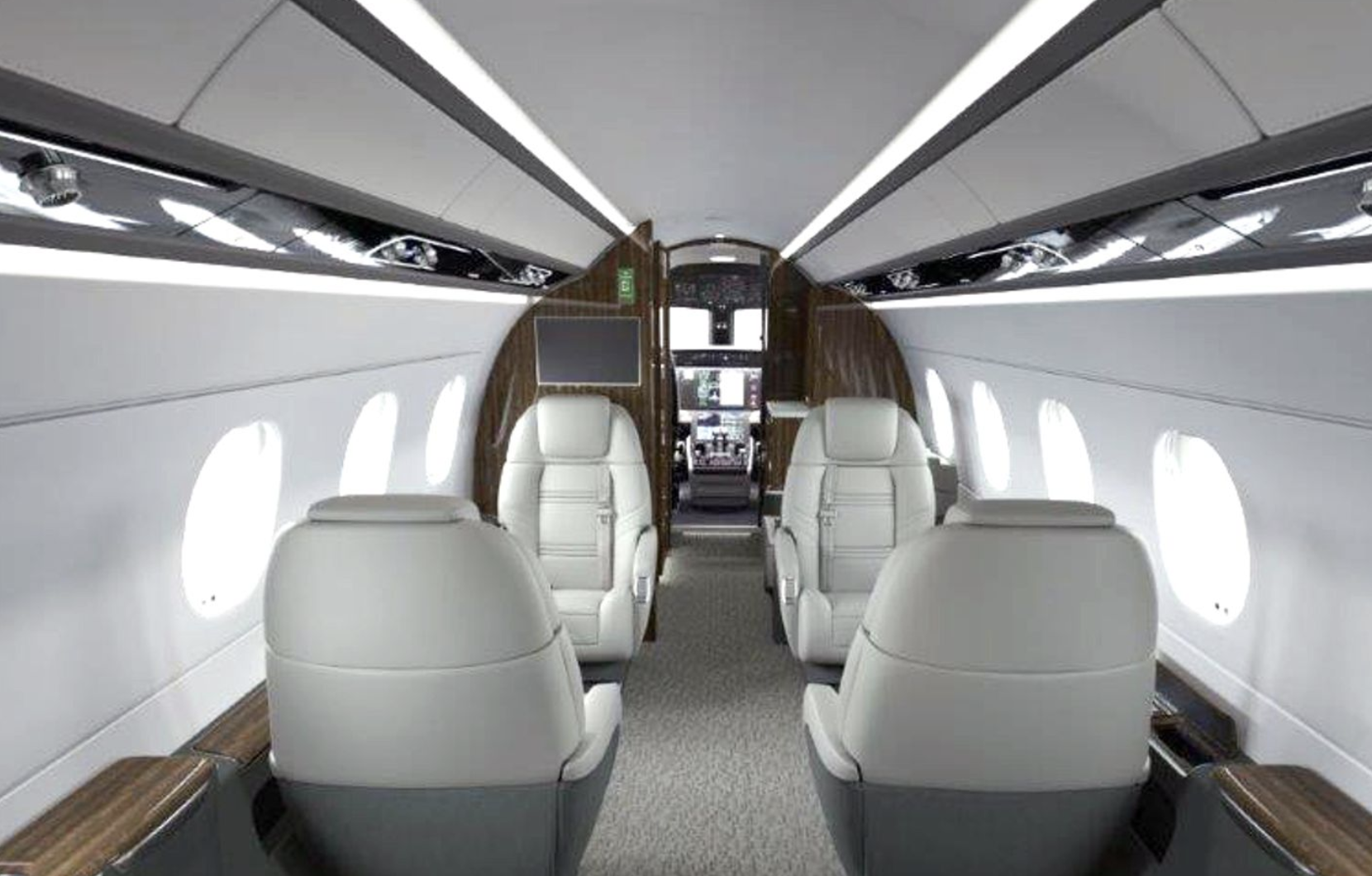The biggest private jet flight provider IPO of 2023, FlyExclusive, began trading publicly on the New York Stock Exchange this morning.
Several delays meant that the ceremonial ringing of the bell will now likely take place in January.
However, the fifth-largest U.S. charter/fractional private jet operator joins Surf Air, Jet.AI, and Volato with IPOs.
Set Jet, which sells individual seats on private jet flights, is expected to begin trading publicly before year’s end.
They join Wheels Up Experience and Blade, which both went public in 2021 via mergers with special purpose acquisition companies, better known as SPACs.
“Today marks another milestone in our company’s mission to elevate the private aviation experience,” said FlyExclusive’s CEO and Founder Jim Segrave.
He continued, “We built FlyExclusive around the value that minutes matter for our customers, and this principle will continue to guide the disciplined approach that has defined our success in the industry.”
Private Jet Provider Financials
One commonality among all the IPOs has been varying amounts of red ink.
In an interview after the market opened with FLYX trading for the first time, Segrave said he remains bullish.
He also discussed recent revisions to its financial forecasts.
Cuts in its revenue projections for 2023 and 2024 are primarily based on delays by Textron Aviation in delivering new aircraft for its fractional ownership program.
Deliveries expected for this year have been pushed into next year, and deliveries anticipated for next year are already sliding into 2025.
READ: Why private aviation’s supply chain and labor crisis isn’t going away
Currently, FlyExclusive has received five Citation CJ3+s from Textron, with five more expected at the beginning of 2024.
Fractional providers don’t book aircraft share sales until the airplanes are delivered.
The revised forecast cuts 2023 total revenues from $367.3 million to $323.1 million.
Adjusted EBITDA forecasted earnings go from $32.0 million to $25.2 million in the updated presentation.
Net loss for 2023 is expected to be $27.6 million instead of $11.9 million.
Revenue forecast for 2024 falls from $520.6 million to $496.8 million.
Its filings show that FlyExclusive expects a net profit of $6.8 million next year instead of $10.2 million.
2024 EBITDA in profit is expected to be down slightly to $49.7 million instead of $53.8 million.
Segrave says the 2023 results include “massive” one-time costs as part of the IPO process.
Public Scrutiny
Segrave is not worried about competitors using his financials as a cudgel, as has been the case with Wheels Up and Vista Global.
With the former, Warren Buffett, Chairman of NetJets’ parent Berkshire Hathaway, told attendees at his annual meeting, broadcast live by CNBC, “(Wheels Up has) 12,600 people who have given them over a billion dollars on prepaid cards…and I think there’s a good chance some people are going to be disappointed later on.”
So far, that hasn’t happened.
Meanwhile, Vista was the subject of an expose by the Financial Times.
Using its $500 million bond offering, the FT revealed increasing debt and net losses.
Despite EBITDA profits, there were also more jet card deposits than cash on hand.
“Being a public company and having your financials out there gives you transparency,” Segrave tells Private Jet Card Comparisons.
About the often no-holds-barred cage matches between flight providers as they compete for six and seven-figure contracts, he says, “I think the fair question is, ‘If you are a privately held company, and you are talking about our financials, what do yours look like?'”
READ: What happens to your jet card and private jet membership deposits?
FlyExclusive Innovation
Segrave launched FlyExclusive in 2015 after selling Segrave Aviation to Delta Air Lines in 2010.
Until 2020, when it launched its first jet card, it focused on the wholesale market.
Two years later, it won Robb Report’s Best of the Best in the private aviation membership category.
Its Jet Club features a daily access rate and then below-normal hourly rates.
It is designed to encourage efficient flying, such as multistop same-day trips and longer flights.
There are also discounts for flying on low-demand dates.
With its fractional program, there are no monthly management fees.
On-Time Performance
Segrave says he is open to following Wheels Up, which started publishing on-time performance and flight completion statistics with its most recent financial results.
“If you don’t do a good job, the customers go elsewhere. I would be happy to stack our numbers up against anyone,” he says.
A crucial part of FlyExclusive’s strategy has been vertical integration.
That has meant building multiple hangars at its Kinston, North Carolina headquarters and bringing MRO services in-house.
It includes everything from standard repairs to installing WiFi, cabin refurbishment, and exterior paint.
To enhance reliability, FlyExclusive also has dedicated piston aircraft to shuttle mechanics and parts when its jets have mechanicals away from the base.
The operator recently received a $30 million grant from the state to build its pilot training complex, including flight simulators.












